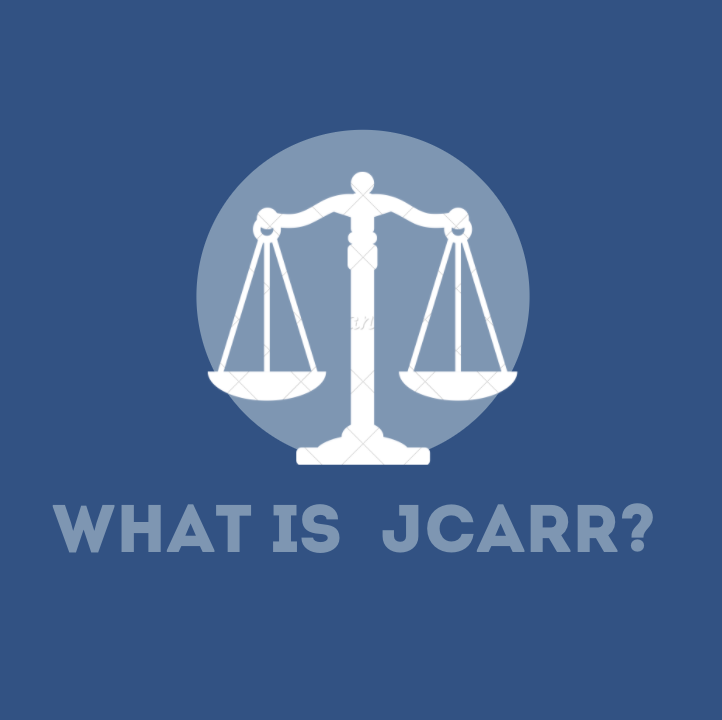What is JCARR?
The Joint Committee on Agency Rule Review (JCARR) is a legislative body that is comprised of and used by the General Assembly to oversee and advise on rulemaking. “Joint” refers to the banding of members from both chambers of the state legislature. It operates to check how new, proposed, or existing rules align with the six prongs below, which can also be found here.
JCARR Rule Considerations:
- Do the rules exceed the agency’s authority.
- Do the rules conflict with an existing rule of that agency or another state agency.
- Do the rules conflict with legislative intent.
- Has the rule-making agency prepared a complete and accurate rule summary and fiscal analysis of the proposed, amended, or rescinded rule (O.R.C. § 106.024);
- Has the rule-making agency met the incorporation by reference standards for a text or other material as stated in O.R.C. §121.71 – 121.75.
- If the rule has an adverse impact on business (OR.C. § 107.52), that the rule-making agency has demonstrated through the business impact analysis (BIA), the Common Sense Initiative Office (CSI) recommendations and the agency’s memorandum of response to the CSI recommendations, that the rule’s regulatory intent justifies its adverse impact on business.
More detailed information on JCARR recommendation reasonings can be found in Chapter 7 of the Guidebook for Ohio Legislators.
Why does JCARR exist?
JCARR is a form of legislative oversight that reviews proposed rules, as well as rules already adopted by all agencies. It exists as a practice of checks and balances between the General Assembly and legislative rulemaking to promote the utility of rules and to ensure consistency between rules, fairness, and fulfillment of rules. JCARR can suggest and advise, but it cannot invalidate or amend a rule itself. Rather, it can recommend that the General Assembly amend a rule, or JCARR can formally question the rules’ validity based on the six prongs listed above.
Who makes up JCARR?
As per O.R.C. § 101.35, it is comprised of five members of each the House of Representatives and the Senate for a total of 10 members. The House members are appointed by the Speaker of House, and the Senate members are appointed by the President of the Senate. Only up to three of each chamber’s five appointed members can be of the same political party. No more than six of the total 10 JCARR members can be of the same political party. For a list of the current JCARR members, click here.
When does JCARR meet?
JCARR meets one to two times per month. JCARR sets a schedule for the year which can be found here.
Where does JCARR meet?
JCARR meets at the Statehouse, in Hearing Room 121 (William McKinley Room).
How to navigate the JCARR website
The JCARR website includes information on the entity of JCARR itself, as well as all JCARR’s updated activity.
Agendas
Both the Regular Agendas and the No Change Agendas can be found here.
- The Regular Agenda contains all rules discussed during a particular meeting, except the “No Change” rules. Rules covered in Regular Agenda are those filed by state agencies, newly proposed boards and commissions, rescinded rules, or amended rules.
- The No Change Agenda contains all “No Change” rules discussed during a particular meeting, and only the “No Change” rules. Rules covered in No Change Agenda are those filed without any alterations made by the filing agency.
Click here for a guide to reading the JCARR agendas.
Weekly Reports
Weekly Reports of all JCARR activity can be found here. These documents contain all rules filed, for a given week, and how they were filed.
Click here for a guide to reading the weekly reports.
Public Notice Reports
All “No Change” rules from the past four weeks that were filed for Five-Year Review (FYR) can be found here. FYR rule review refers to O.R.C. § 106.03 and O.R.C. § 111.15, where any rule with a review date must be reviewed, and specific rules must be reviewed at most five years from their effective date.
JCARR Requests
Requests to JCARR can be found here. JCARR is required to post the requests they have made to summon agencies before the committee. Agencies are summoned to explain the implementation failures of their rule.
Members of JCARR
The JCARR members can be found here, and JCARR staff can be found here. These pages give names and bios for all 10 state legislators that are on JCARR as well as the JCARR staff.
JCARR Resources
There are several resources that further aide in understanding the purpose and methodology of JCARR, as well as tools to help stay informed of its current and future activity.
- Date Calculators allow for calculation of the date a rule is proposed, the date of a public hearing, or the desired effective date for a rule, the new FYR date for a rule and/or the number of extension days for a rule.
- The Filing Matrix shows the model that JCARR uses to determine their “action dates” depending on the date that a rule was filed.
- The Procedures Manual is an intricate report of what JCARR is, what they do, and how they are to perform their duties.
- Sample Rule Summary and Fiscal Analysis (RSFA) Forms for general questions, questions on local government matters, questions on matters of environmental rule, and a compilation of the RSFA forms.
- The Hearing Summary Report (HSR) is for any/all observations or critiques of JCARR’S hearings.
- The FYR Extension Letter is for requesting an extension of a Five-Year Review of a rule, as well as instructions on how to determine what date to request extension to for a particular rule.
- Announcements include a list of dated and summarized JCARR news.
- To join the JCARR Mailing List, click here to receive weekly JCARR updates, agendas and filing documents.
- The Rule-Filing Acronyms glossary is a resource for reference of the acronyms used in the meetings’ minutes, agendas, public notices, and weekly reports.

